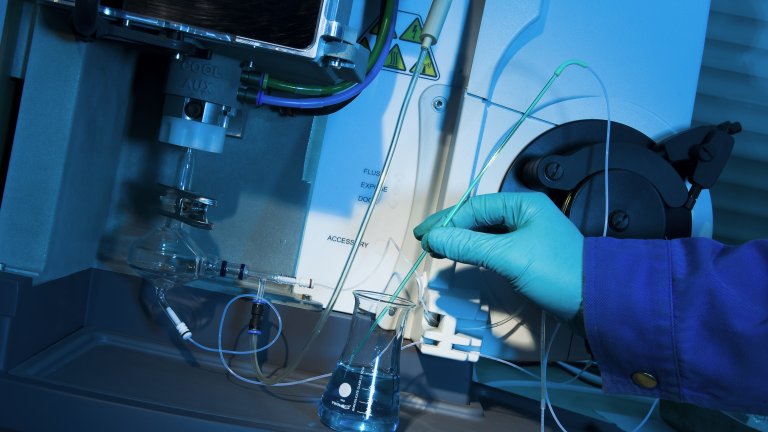
Treasure Hunts in Discarded Vehicles
Platinum and similar precious metals are rare and expensive raw materials. Almost the entire world’s production takes place in two countries, namely South Africa and Russia, and almost half of that production is being used for the manufacturing of automotive catalysts. One of the most important recycling companies for these metals is the company ReMetall Deutschland AG in Drochow (Oberspreewald-Lausitz), which won the Brandenburg Innovation Award Metal with its highly efficient process in November of 2016.
Innovation Award for highly efficient electric arc process
The old catalysts arrive at the company in large lattice crates. First, the hard steel cases of the catalysts have to be ripped open. The knowledge of the employee operating the machine is of vital importance as each catalyst has a different form. A ceramic carrier coated in an extremely thin layer of platinum, rhodium and palladium can be found inside the catalyst. This carrier is then cut into pieces and ground into a homogenous powder. “In our laboratory we determine the precious metals content,” says Wegner; which ranks at 0.25 per cent on the average.
The metal is being separated from the ceramic in an electric arc furnace at the company’s second business location in Lauchhammer (Oberspreewald-Lausitz). The low-cost and low-emissions process is worldwide one of its kind and clearly superior to the usual natural gas and oxygen technology, which can reach temperatures of only 1,700°C. The product of this process predominantly contains iron and has a precious metals content of five to six per cent. Then, a refining establishment extracts the pure platinum, palladium and rhodium.
The recycling technology steadily continues to advance
The company ReMetall Deutschland AG was founded in 2014 and at the beginning it had 25 employees and an annual turnover of about €20,000,000. It plays an important role in the field of catalyst recycling. Approximately 500,000 catalysts turn up at Germany’s junkyards every year. Only a couple of businesses in Germany extract the precious metals from the scrap metal. ReMetall’s predecessor company was created in 1996 at the same location and it was one of the pioneering businesses of that sector.
Since then the technology has gone through a process of considerable further development. “This process is still going on,” stresses Rainer Wegner. The slag that is the final product of the precious metals separation process contains, for example, rare earths, and it would be worthwhile to extract them. This is one of the topics on which the company ReMetall AG, which employs two engineers and three chemists, is conducting research itself. The company is also considering the option of entering the field of catalyst manufacturing; not for vehicles but for the industrial market or for exhaust hoods in private households. “So far we have no concrete plans,” says Rainer Wegner. In the field of research and development the company ReMetall works together with the Academic Chair for Physical Chemistry of the Brandenburg University of Technology in Senftenberg (Oberspreewald-Lausitz) and focuses on iron as an interfering factor during analyses. The Academic Chair for Inorganic Chemistry of the University of Potsdam cooperates with the company on the research of selective separation processes. The Fraunhofer Institute for Advanced Materials in Dresden is a cooperation partner in the development of new catalyst carriers.